Did you know I used to run a publishing company? When I was in college, I developed a business plan in my entrepreneurship class and launched it as a real business. The company was called Brook Audio, and we published public-domain audiobooks for homeschoolers.
The plan for my company was based on my experience as a homeschooler and several observations about homeschoolers:
- Homeschoolers like old books, the kind of books with expired copyrights.
- Homeschoolers spend a lot of time in the car since they tend to live in rural and suburban areas.
- Homeschoolers (at that time) did not have the ability to play iPods via Bluetooth or MP3 CDs in the car, but they could play conventional CDs.
- Homeschoolers preferred to buy real, easily playable CDs, rather than less expensive but almost impossible-to-play MP3 CDs.
I spent months developing an on-demand CD production process that allowed us to rapidly burn CDs so homeschoolers could turn their cars into classrooms.
I purchased a vendor booth at a homeschool convention and learned that my first three observations were correct. The fourth observation, however, was wrong; and I was shocked. As a fluke, I had brought MP3 CDs of our complete library of books, which most moms in 2009 didn’t know how to use. But that MP3 CD turned out to be our bestseller.
I would explain to my homeschool moms, “This is an MP3 CD. You can’t just put it in your car’s CD player. You will need to know how to work with and play MP3s.”
They would reply, “I know. My kids can figure it out.”
The regular CD versions of the books hardly sold. Homeschool moms wanted the MP3 CDs.
All those months of developing an on-demand CD-burning system were wasted. I had invested thousands of dollars into a company with a fundamental flaw. If MP3 CDs were what people wanted, there was no room in the market for an MP3 CD company because I knew that soon everyone would be getting their MP3s over the internet.
My money was lost, and Brook Audio is no more.
I learned an expensive lesson: Test your ideas as soon as possible. Just because you have unique insight does not mean you understand everything.
In the book The Lean Startup, Eric Ries talks about developing a minimum viable product, or MVP. The minimum viable product is a way of testing an idea and a market to see if the idea is worth more investment.
Writing a book is not expensive in terms of dollars, but it is expensive in terms of time. You can save yourself a lot of wasted time if you test your book ideas before you invest countless hours writing them.
How do you test book ideas?
If you write fiction, you could release your book one chapter at a time on Substack to see if people are willing to pay to subscribe. You could also blog about your nonfiction topic to see if your posts get good traffic.
But my favorite way to test book ideas, whether for fiction or nonfiction, is with a podcast.
Podcasting your book before you write it allows you to find out if your topic meets the needs of your audience. You’ll learn about your listeners’ deepest pains, and you’ll be able to write your book as a painkiller for those specific struggles.
How do you test your book idea with a podcast?
Asheritah Ciuciu knows a thing or two about testing ideas through podcasting. She is a national speaker, bestselling author, and host of the popular Prayers of REST podcast, which just reached half a million downloads and is in the top 0.5% of all podcasts in the world.
How did Asheritah Ciuciu get into podcasting?
Thomas Umstattd, Jr.: How did you get into podcasting?
Asheritah Ciuciu: I had wanted a podcast for years. In fact, I had outlined three different podcast ideas. I had a content calendar and a list of guests I was going to invite. But every time I was ready to get after it, I didn’t have a sense of peace to pursue it.
In co-laboring with God’s Spirit and surrendering and submitting to him, I said, “Okay, I’m going to wait.”
Then came a season in my life where multiple people told me, “You really need to start a podcast.” It became a running joke. I’d reply, “I know, but God won’t let me.”
But in early 2020, when the lockdown happened and everyone was stuck at home, I sensed God’s Spirit saying, “This is the time. This is what you were waiting for.”
I had not considered Prayers of REST to be one of my more stellar podcast ideas, but it was the topic of the next book I had been contracted to write.
At conferences and retreats, I had led women in a time of prayer using this REST acronym. So, my publisher, Moody, gave me a contract for a book of 365 prayers using the REST acronym.
During the lockdown, when there was so much unrest, it was the perfect time to call people into a space of rest and a time of intentional prayer.
It started as a live Instagram video feed, rather than a podcast. I had not yet invested in a microphone or podcasting equipment, but the live video was the minimum viable product you mentioned.
I wanted to see if people were interested in prayers of REST, so I invited my Instagram community to join me for a time of intentional prayer during lockdown. I said, “I’m going live tomorrow morning at 7:00 a.m., and every weekday I’ll be here. We will pray through Scripture using this format.”
It got to a point where I didn’t have the stamina to keep up daily prayer calls, so we decided to do it once a week. Even then, we adopted a test approach; and I tried the weekly podcast for 12 weeks through the summer to see if people were interested in the weekly format.
Again, I was blown away by the community response. People were sharing the podcast with their friends and telling them to listen.
It was a successful first season; but even with that confirmation, I needed to know whether podcast listeners were with me before I wrote the book.
By the end of the summer, I had learned how to edit and produce the podcast myself. But I needed to start writing the manuscript, and I knew I’d need to hire help for the podcast production.
Again, I brought it to my community of listeners and said, “If you want this podcast to continue, I’m going to set up a Patreon account. I need X amount of dollars. Let’s make this happen.”
Within 48 hours, we were fully funded, which again was the hand of God.
When God’s hand is on something, he will make it happen. That was three years ago, and we’re still going strong. Prayers of REST has half a million downloads from all over the world, and I’m so excited about what God is doing with it.
Thomas: And you now have that interaction with your listeners and your readers, which I imagine is helping inform the book.
How did your listeners inform your writing while you wrote the book?
Asheritah: I tested the structure of the REST acronym to find out whether people understood what each letter meant and whether the format was needed.
Early on, I got comments on the live videos of how God was using the time of prayer. Later, I heard from podcast listeners via email and through reviews on Apple Podcasts. People would say how God was using the prayers in their lives.
There’s so much self-doubt that follows us into the writing process. Sometimes, I’d be in the middle of a session of writing prayers and start thinking, “Why am I doing this? Who am I to do this? People don’t need written prayers.”
Writers know there’s often a soundtrack of self-doubt that urges you to quit. But having that community and being able to read those reviews helped me stay on track. I could also post in our Patreon community and say, “I’m writing prayers about who I am in Christ. Would you pray for me as I’m writing these prayers?”
Readers would respond and say, “We need that! Here’s where I’m struggling.”
Those comments allowed me to write specifically to the pain points listeners identified in those comments.
I’ve written seven books now, and this is the most collaborative. I put content out there, I hear back from my community, and then I write in response to it.
That approach has helped with the self-doubt and the topic ideas. It was tough to come up with 365 prayer topics, so I asked my community, “Which of these topics would you like to see prayers for?”
All that communication and collaboration was possible because of the podcast community.
Thomas: Surveying your listeners is so beneficial.
I recently surveyed listeners on my other podcast, Novel Marketing, and it was so enlightening.
Every time I do a survey, I learn something new about my audience. Usually, I have believed something about my audience that ends up not being true. Once I learn the truth, I can tailor my podcast to their needs. When I do, I typically see a surge in downloads because I’m publishing the content they specifically need and want. I also get a better sense of their preferences and who they are.
Were you reading those 365 prayers from your book on the podcast?
Asheritah: The podcast came before the book. For the first eight weeks, I was doing live prayers five times a week. After our half-hour, live prayer call, I’d listen to the recording and type the prayers out based on what had been prayed live. I preferred it that way because I felt like there was a spontaneity in the spirit of live prayer.
Being able to write the prayers after I recorded them was beneficial, but I quickly outpaced that; and now there are 365 prayers.
Now, we’re going through the book on the podcast one collection at a time, building our new seasons around those collections, and adding extra prayers as we go. That will keep us busy for the next few years.
Why would someone pay to get prayers on paper that they already heard in a podcast for free?
Asheritah: My publisher asked the same thing.
I asked my community, “What are you looking for?” and I was able to take their responses back to my publisher.
During the first few weeks of live prayer calls, the number one request was to have the prayers in writing.
Now, people are introduced to the Prayers of REST podcast; and then they’ll go buy the book because they love what they’re hearing and want it in written form.
I can’t overemphasize how beneficial it has been for me as a writer and a content creator to have a community that is giving me feedback all the time. Not only do listeners pay for the book, but Patreons also pay monthly to support the podcast.
When you build a community around a central belief, you get buy-in. They believe in what you have to offer, and they want to support you. They’ll support you with their purchasing dollars, shares, reviews, and prayers.
I can’t explain how valuable it was for me to have a community of people praying for me as I wrote the book during the pandemic. When I launched the book, the community was already formed. They knew the book had been written for them. They were committed to it and wanted to champion the book.
Thomas: The medium is the message.
When somebody says, “Why would they buy your book if they’ve already heard it for free on a podcast?” it’s the same as asking why someone would see a movie if they’ve already read the book.
It’s a different experience to buy the book; and if you are blessing people with your podcast, they want to reciprocate the blessing. Plus, if they’re enjoying the podcast, they know they’ll love the book.
That’s an easy sell, and savvy publishers will let authors like you continue doing things like this because it works.
Successful podcasters lead to successful books because the kind of people who listen to podcasts are the kind of people who buy books. They even buy audiobooks of the podcast because they can listen without the interruptions of announcements and sponsorships. That convenience may be worth an Audible credit for some listeners.
Don’t believe the myth that if you test your ideas, people won’t pay for them. The opposite is true. If you don’t test your ideas, they may not be worth paying for.
Asheritah: My publisher has really gotten behind this idea because of what has happened post-launch. Now that we’ve already launched the book, the podcast has become a continual promotional strategy. We’re not constantly saying, “Buy the book! Buy the book!” But I am saying, “We are praying to overcome spiritual strongholds, and the prayers are based on this collection on these pages from the Prayers of REST book.”
I mention it for copyright purposes but also to let listeners know it’s available in print.
In some ways, I have two audiences. It started as the podcast community that championed the book and the podcast. But now, a year after we launched the book, I’m finding that people discover the book before the podcast.
Sometimes, listeners become readers; and other times, readers become listeners. I can reach more people, and it doubles my marketing efforts.
Thomas: A podcast is a great asset because it keeps growing. A book is written, published, and then becomes a part of the historical record, whereas a podcast is, in a sense, a living, growing thing.
Does a podcast run indefinitely?
Thomas: Podcasts, like TV shows, are published in seasons.
If you’re thinking about starting a podcast, you don’t have to commit to a daily or weekly podcasting schedule indefinitely. Some of the most popular podcasts in the world publish weekly for five weeks and then break for months so they can prepare for the next season.
Other podcasts only have one season. The podcaster might record 12 episodes that stand alone and allow people to continue to go back and listen.
You’ve probably noticed that your old episodes continue to get downloaded. Some of my old episodes outrank my new ones.
Asheritah: You also have the benefit of offering listeners your back catalog.
My desire from the start was to encourage people to start a daily prayer habit. When I only had 12 episodes, people could relisten to those every day, but that got old. Now, if someone stumbles on the podcast for the first time, they can go back and listen every day and form that habit because we’ve been continually publishing content.
What resonates with a certain audience group might not necessarily resonate with another. For example, we did a season of praying through tricky relationships and another praying through hard emotions. Some listeners needed one more than the other.
The concept of seasons relieves the pressure of needing to figure it all out perfectly the first time. It also gives you the freedom to tweak as you go.
For example, in our second year of podcasting, we introduced interviews. For the first year, we only published 10-minute prayers once a week; but for our second year, I wanted to interview experts who could help us discuss those hard emotions or tricky relationships. Personally, I wanted to talk to experts whose books I’d read and invite them to the podcast.
During our second year, we published prayers on Mondays and interviews on Wednesdays. I had a blast, but my community wasn’t really into it, which surprised me. Their feedback told me they were there for the prayers. After a year of trying to make the interviews work, we listened to their feedback and stopped recording interviews.
We can better serve our audiences by being receptive to change and willing to adapt.
Thomas: And that’s why it’s so important to listen to your listeners, instead of imitating another podcaster because you personally like what they’re doing.
I suspect if you had started a second podcast with the interviews, you would have eventually developed two audiences; and some people would have listened to both.
That’s what I do.
I publish Novel Marketing weekly and the Christian Publishing Show monthly. Some people listen to both, but most listen to one or the other. Even though I mention both podcasts regularly, I’m surprised how many people don’t know I have other podcasts. I also have a third podcast where I publish episodes where I’ve been interviewed.
Different shows and different formats attract different audiences.
The daily devotional format is popular now because people are busy; but they still want to be in the Word and pray, even if it’s in their car. You’re able to meet people where they are.
Asheritah: The 10-minute time limit we imposed on ourselves has been challenging. Our podcast is unique because we build in a time of quiet for the listener to pray.
I will pray Scripture, modeling that REST acronym, and then allow quiet time for them to pray. My initial recorded prayers are often 15 minutes long, and my editor doesn’t always know what to cut; but our time limit forces us to be intentional and creative.
We prioritize the listener and aim to respect their time. They’re busy, so we make sure we build in quiet time for them to pray. We have to be creative to serve our listeners in that short time frame, so we ask:
- What do we need to adapt?
- What do we need to change?
- How can we listen to our audience and what they need?
Sometimes, the best ideas come from those limitations.
Thomas: The challenge provides constraints, which spur creativity.
Remember in grade school when your teacher gave you a blank piece of paper and told you to write a 200-word essay? It was an impossible project because you didn’t know what to write about. The options were too vast.
But if she told you to write an essay about your trip to Disney World, suddenly you were filling pages and pages. The constraints ultimately make it easier.
Asheritah: With our short format, some listeners told us they missed the half-hour Instagram prayer calls, so we made that a monthly feature of our Patreon account.
You also have to be mindful of your own limitations. I’m in a season of pruning and doing less. I’m evaluating where my efforts are bearing the most fruit and where I’m seeing God at work. I want to double down in those areas and prune the fluff.
I pruned the podcast interviews, which took a lot of coordination and production time but weren’t really what my audience wanted.
God is so faithful in providing fruit and harvest when we listen to him and walk in his way.
I could have started my podcast in 2016 when there wasn’t as much podcasting competition. From a secular perspective, someone might say I had missed the boat. But as followers of Jesus, we have the guidance of the Holy Spirit in everything, including starting or tweaking a podcast. When we submit to God, we get to watch him produce the growth and harvest.
Thomas: You can view pruning as saying “no” to the unfruitful branches, but you can also view it as saying “yes” to the fruitful branches. The amount of energy and nutrients in the soil doesn’t change, but it can be redirected.
The same is true for your time. You have the same amount of time, but you can reallocate your time and money to the most fruitful branches.
In my current life stage, I’ve had to say “no” to my deep involvement in politics to make room for my family. Saying “no” to something for a season doesn’t mean you’re saying “no” forever.
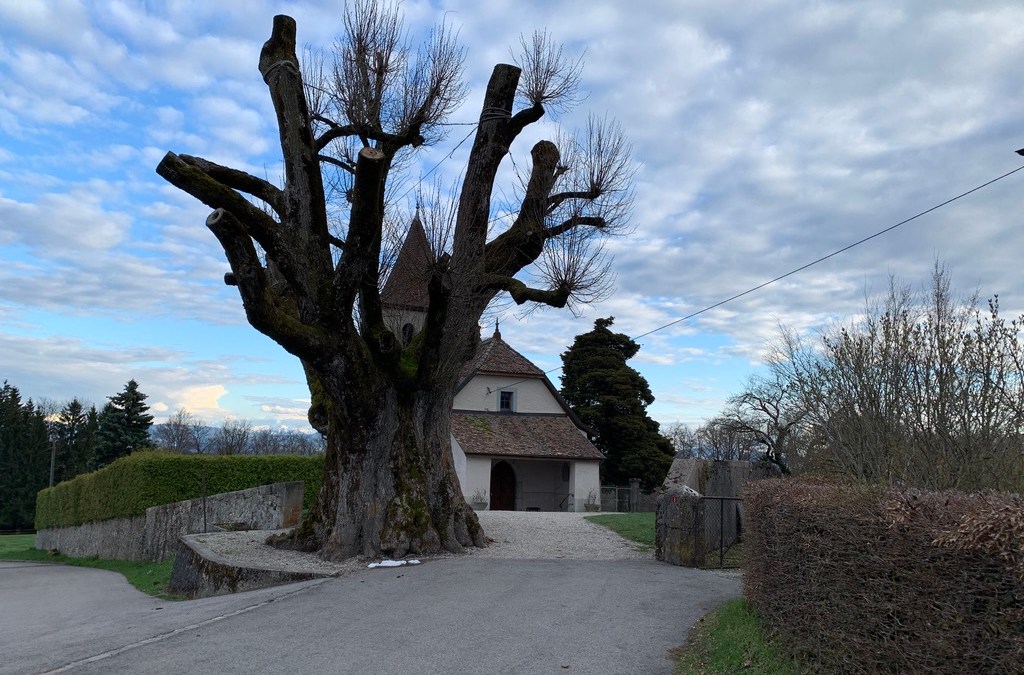
Asheritah: Parenthood has been one of the most challenging things in my life. I’m constantly asking God for wisdom to know where to lean in and step back. When we walk in step with the Spirit, he will lead us in the way we need to go.
Someone said that the most important thing you might do for the Kingdom of God is invest in the child in your home because that child might grow up to evangelize millions.
I’m also personally convinced that a season for more public ministry will come when my kids are older. In the meantime, I’m here in my home office in Northeast Ohio, recording podcasts on prayer that God is using around the world.
What a great time to be alive! What an incredible time to be doing the creative work of God’s Kingdom. We don’t have to travel overseas to have an impact internationally. We can just offer God the little that we have, and he can use it and multiply it to reach the nations around the world.
Thomas: It may be that your children invest in the next generation just as you did. They don’t have to be traveling missionaries to the nations either.
Quiet faithfulness is incredibly powerful.
For example, in Egypt, primarily a Muslim country, you will find Coptic Christians who trace their Christian heritage back 2,000 years because one generation of parents invested in the next. Generation after generation, century after century, they told their children about Jesus and the candle has not been extinguished.
And yet, I couldn’t name a single famous Coptic Christian. It’s an old sect of Christianity, but they’re faithfully serving Christ and passing it down to the next generation.
In our day and age, you can be at home with your children, investing in the next generation, and have a microphone or a keyboard and talk to the nations. It doesn’t have to be an either/or, and it’s much easier to magnify your voice now than it used to be.
Asheritah: I agree.
I think we also need to be careful about doing busy work for the sake of being busy. Our work can be a mile wide and an inch deep and not really make a difference for eternity.
We can churn out content for the sake of being busy, and I don’t think that’s what God is calling us to do.
When you’re pruning, prioritize your relationships, whether that’s your children, your local church, or your next-door neighbor. God is calling us to pour into those people.
Then, evaluate the work you do at your keyboard or microphone and look for where and how you can go deeper instead of adding more. Look for places where you can meet a specific need. If you’ve heard someone in your sphere of influence say, “I need this,” then start by serving that one person.
In God’s timing, he will bring more if that’s his call. And if not, then go deep with that one person. There is great reward in that as well.
Thomas: Obedience is its own reward when you’re obeying a good King. Obedience becomes toxic if you’re obeying a bad king or a bad philosophy.
Americans value work, but it’s easy for us to make a good thing a god. Our good King said, “Six days you shall work,” but he also commanded us to rest.
Asheritah: My husband and I were just talking about this. We were recently in Amish country with our small group from church. As we drove home on Sunday, there was no one on the road. All the stores were closed. Everyone was gathered with their community, and even the horses that pulled the buggies were resting.
God cares. He cares about us, which is why he commands rest more as an invitation than a dictation. Even Jesus says, “Come to me, all you who are weary and heavy burdened, and I will give you rest.”
But God cares also about the animals and the land. Through the prophets, God told his people that since they didn’t let the land rest, and because they didn’t trust him to provide in the seventh year and in the fiftieth year of Jubilee, they would be led into captivity. And the land would get its rest.
We tend to wear busyness as a badge of honor; but God invites us into seasons of rest, pruning, and slowing down. Instead of being embarrassed by resting or thinking it’s going to hurt our ministries or careers, we need to watch for God to work in our season of rest.
I’ve found that those seasons of slowing down and resting are the times God does some of his best work in my heart to prepare me to minister when the resting season is done.
This past year has been one of slowing down and resting. I’ve seen the toll that launching two books in two years and seven books in six years has taken on my physical body.
I have so many ideas for the next year, but I’m taking them all before the Lord, asking him, “Where do you want to move?”
I never want to commit to so much work that I’m too busy to rest or throw a Frisbee with my daughter or cuddle with my kids on the couch.
Rest demonstrates trust. We trust God to be who he says and do what he promised.
Thomas: That’s an important reminder because it’s easy to get distracted by the technology and the shiny new buttons and microphones. There’s always something new to distract us.
In fact, I was wondering if you’ve played around with dynamic content insertion with your podcast to promote your book. Buzzsprout makes it easy, and it’s a great way to leverage your old episodes to promote your new thing.
How do you use your old episodes to promote your new book?
Asheritah: We’ll go through our content calendar and see which products we want to promote in various seasons of the year. We’ve chosen not to run ads on the podcast because we’re supported by our Patreon community. But we do insert dynamic content based on whatever product we feel would best serve our audience in each season.
The Prayers of REST book is one of the calls to action at the end of each episode. I rotate through six different calls to action, including the book, a request to leave reviews, a request to share the podcast with a friend, and a call to buy a signed copy of the book through our website.
On the front end of the podcast, the dynamic ad we insert will either promote an upcoming season or Scripture cards that accompany the season.
Since we’re coming up on Advent, I have an Advent book that has nothing to do with the current season; but if listeners like my content, they’ll probably like my Advent devotional.
Using dynamic content gives us an opportunity to communicate an announcement or invitation to our audience across the board, regardless of which episode they’re listening to.
We’ve tested it for the past year, and we’re pleased with how it works.
I add the recording of those dynamic ads to my recording schedule. I tend to batch-record 12 prayers, and I’ll add those dynamic segments that we’ll need in the coming months.
We record a few months ahead of time to give our editing and producing crew time to get everything scheduled. I’ve only been able to produce weekly podcasts alongside a rigorous publishing schedule because I have a team. Once I record the prayers, it’s basically out of my hands.
Thomas: Dynamic content allows you to insert the Advent ad on all your past episodes, but only during the Advent season. In January, you can swap out the dynamic content with an ad for a Bible reading plan. BuzzSprout (affiliate link) makes it easy.
Asheritah: Everything that my team does, I’ve done on my own at first. I like knowing what goes into the process. When we needed to switch dynamic ads while my producer was on vacation, I knew exactly what to do.
Thomas: I encourage our listeners to check out Asheritah’s podcast to see how a podcast can inform a book.
Authors have several options when it comes to podcasting. You can podcast the book first, chapter by chapter. You can podcast elements of the book, or you can use the podcast as a way of hosting conversations with readers to get acquainted with their pains and needs. Those conversations will inform your writing.
I encourage you to give podcasting a shot. If you want to learn how to start a podcast, check out my stand-alone course, The Author Podcast Academy. Obscure No More students already have access to the course.
Any final tips or encouragement?
Asheritah: Test your assumptions, and start small. That might mean going live on Instagram to see what your audience says, or talking to your neighbor who is your ideal reader. Start small, and test your idea before you commit to a whole lot.
When you’re in the thick of a project and filled with self-doubt, you’ll be so happy to have tested those assumptions.
Thomas: You can test your assumptions with a minimum viable product. The term minimum viable product may be a new term, but the principle of being faithful with the little things is an ancient principle from Jesus. If you follow his advice, you’ll be pleasantly surprised with the results.
Connect with Asheritah Ciuciu:
- Podcast: Prayers of REST
- Website: Asheritah.com
Featured Patreon
Kelly Jo Wilson, author of Tearing the Veil
Do you face rejection, hopelessness, and feeling disconnected from God? There is good news! Learn how Jesus made sure you never have to be separated from God and how much your life is truly worth.


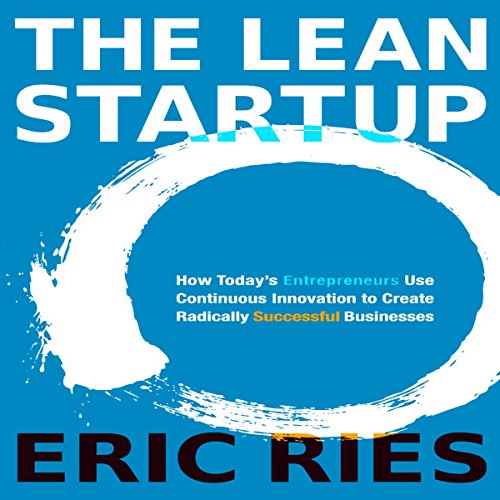
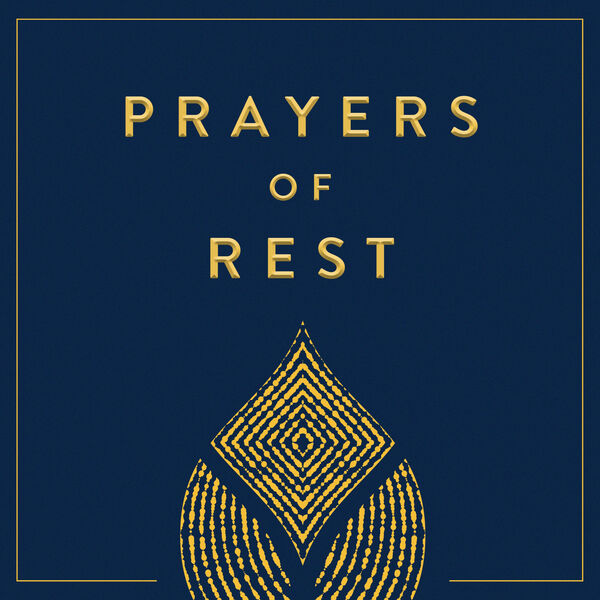
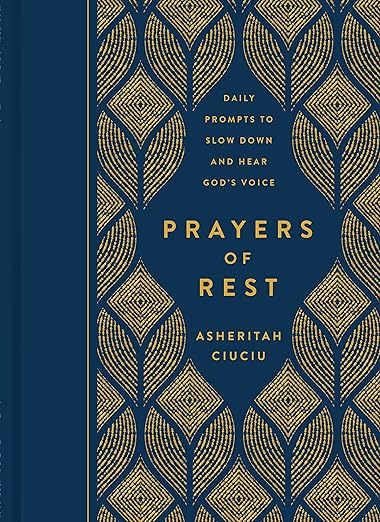
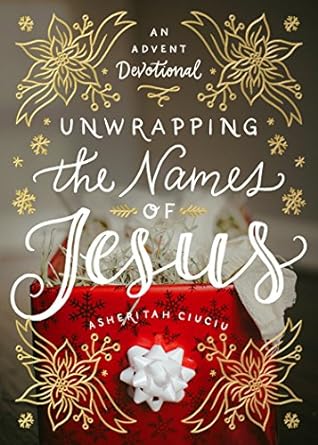
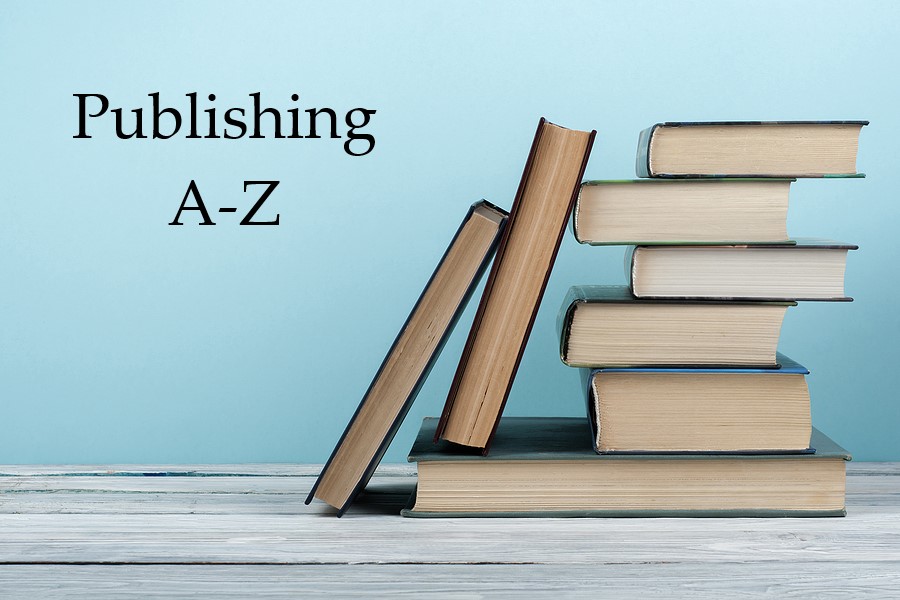 F Is for Foreign Rights
F Is for Foreign Rights
